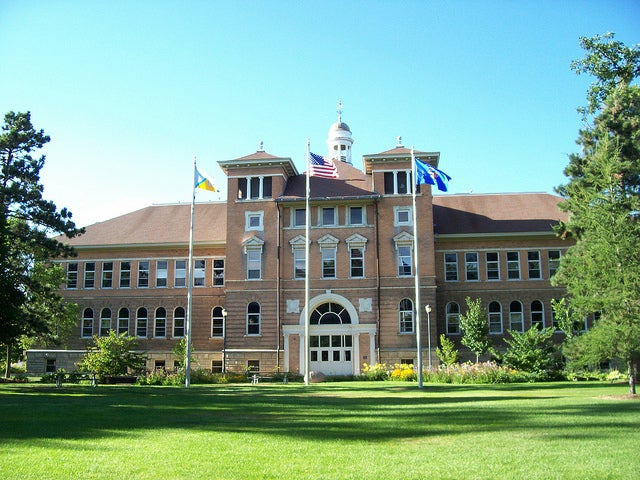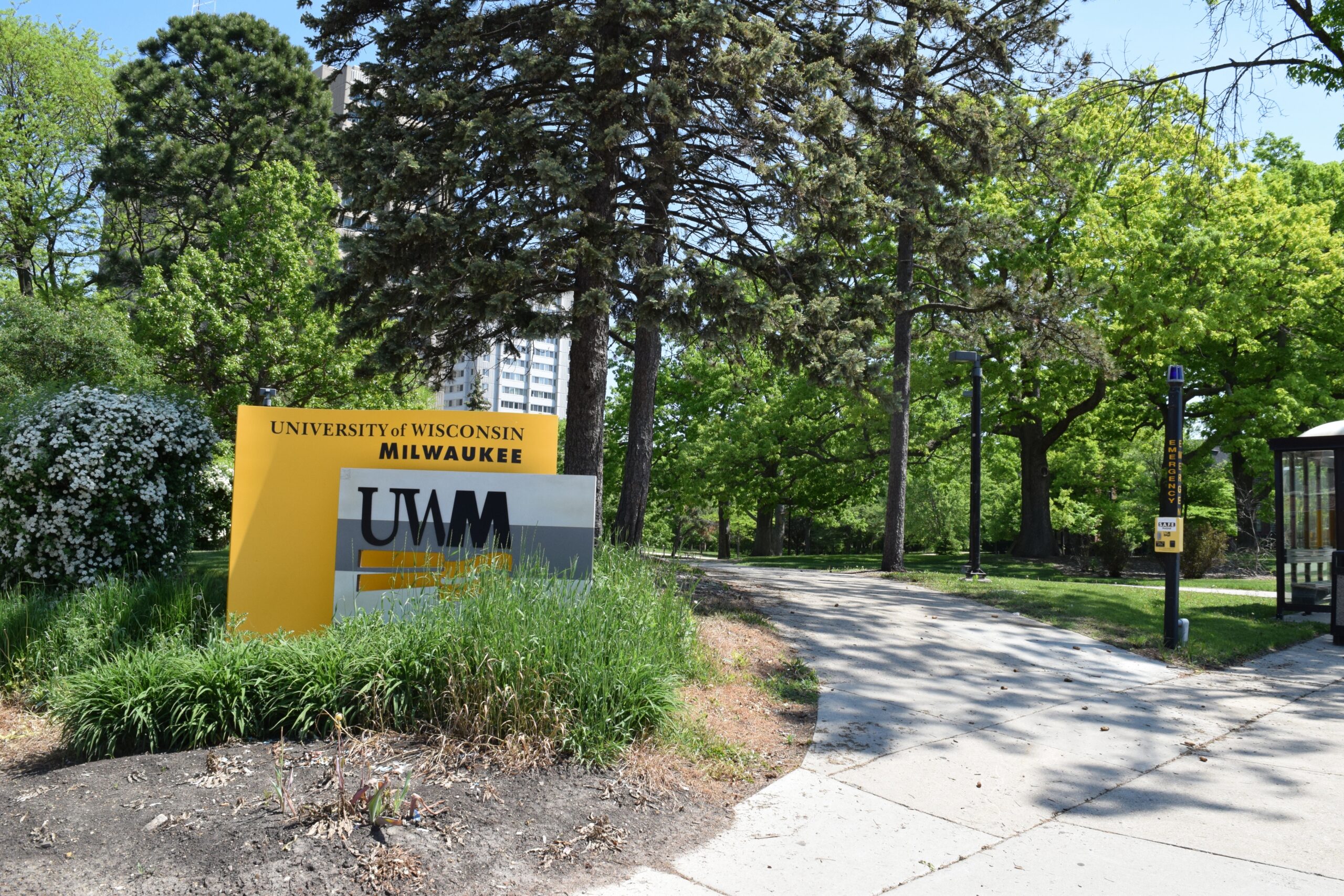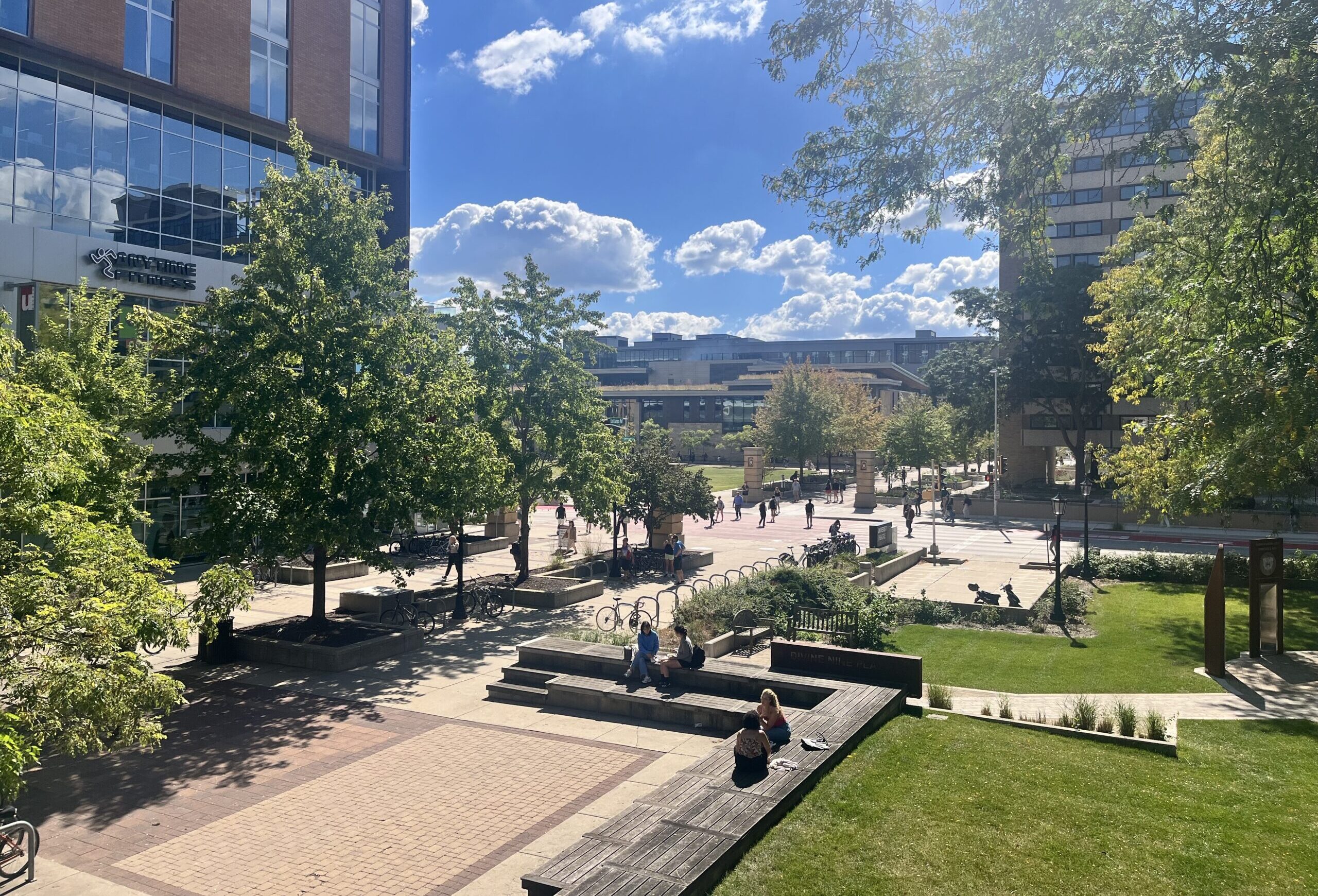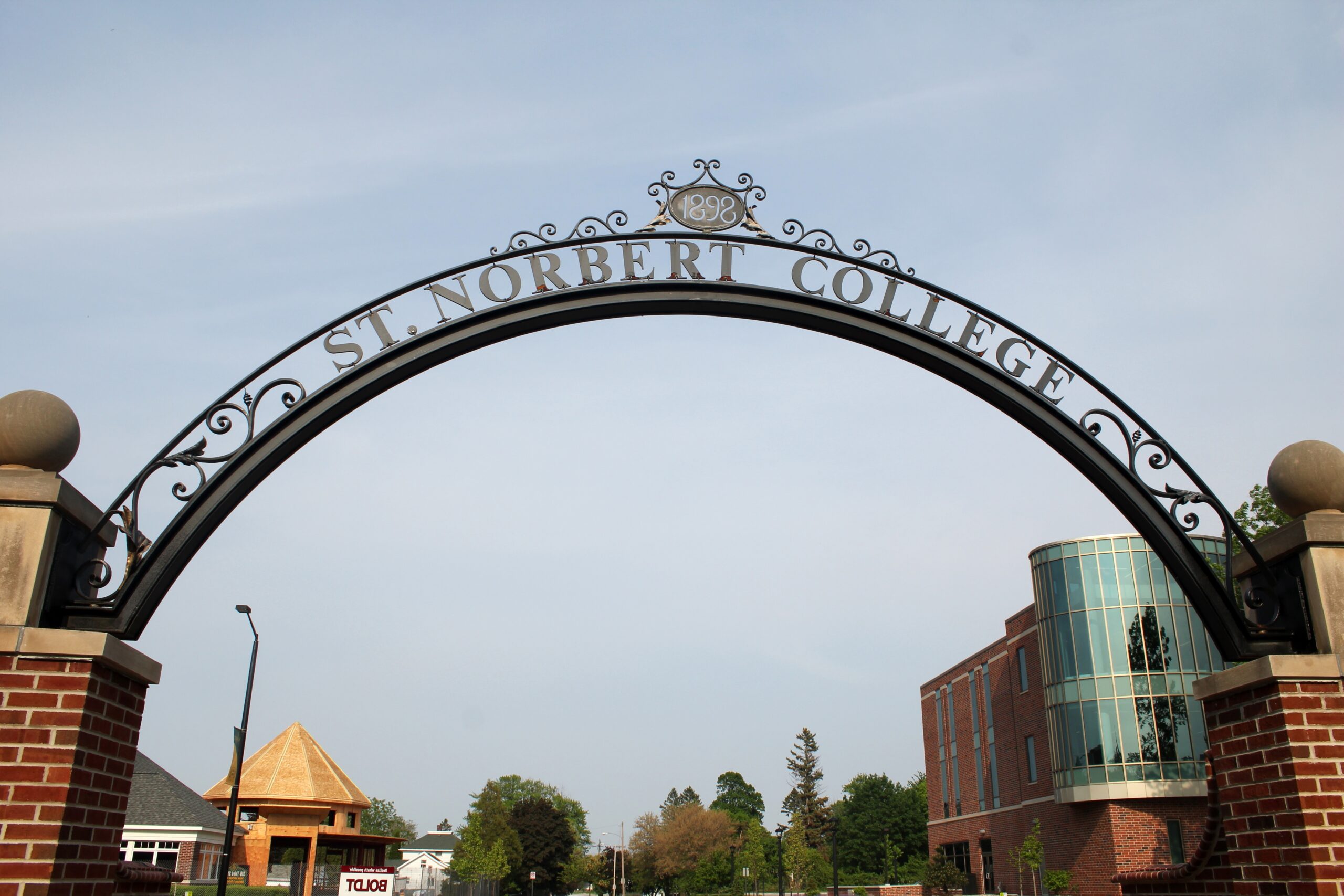The University of Wisconsin-Stevens Point is planning a sweeping elimination of academic majors in order to address a $4.5 million dollar structural deficit.
Under a proposal announced Monday, the university will eliminate 13 majors: American studies, art, English, French, geography, geoscience, German, history, music literature, philosophy, political science, sociology and Spanish.
While majors in humanities and liberal arts are being cut, the university plans to add 13 majors, most in technical fields, and three advanced degrees.
Stay informed on the latest news
Sign up for WPR’s email newsletter.
The school has been hit hard by declining enrollment, years of state budget cuts and a six-year imposed tuition freeze, said Greg Summers, provost and vice-chancellor for academic affairs.
“The simple financial reality that our institution is in is we cannot afford to be the same kind of comprehensive university that we’ve been in the past,” Summers said.
In an executive summary released Monday, the university said it was eliminating “under-enrolled majors” because it has “tried nearly every other strategy.” The summary said the school has already “increased workloads, raised class sizes, reduced administrative spending, and nearly eliminated budgets for supplies, equipment, technology and facilities.”
UW-Stevens Point Chancellor Bernie Patterson said the cuts will be painful.
“I personally feel a great loss,” Patterson said. “I feel it to the bone.”
Ed Miller, professor of political science, said the announcement took him by surprise.
“I was personally surprised about the radicalness of the change,” Miller said. “We do live in a democracy, and universities are supposed to be preparing people to participate in a democracy, besides participate in the workforce, although that’s certainly important.”
Miller said his department not only teaches students how to think critically, but has a track record of success in job placement.
“Our majors have done well in the job market, plus getting into graduate schools, not just in political science, but in public administration, city management, and certainly law schools, so we have actually had lots of success since I’ve been here, which has been a long time,” Miller said.
Summers echoed Miller’s statement.
“We’ve had very successful graduates in these majors. We always have, and that part of it saddens me. I do think there is an undeniable loss to the university and to the region,” Summers said.
According to numbers supplied by the university, the school has been hit with more than $9.6 million in net state budget cuts since the 2011-12 school year.
Just $666,500 of those cuts were restored by the state budget increase signed by Gov. Scott Walker in 2017.
Summers said in the 1970s, about 50 percent of the UW-Stevens Point budget came from state funding. That number is now about 13 percent.
State Rep. Katrina Shankland, D-Stevens Point, blamed Republican lawmakers for what she called “devastating cuts over the past few budgets.”
“I think that the chickens are coming home to roost and it’s going to affect our local economy,” Shankland said. “It’s going to affect our local employers who are looking for students with comprehensive education who are good at communicating and thinking for themselves, and that’s what liberal arts degrees do.”
Patterson said UW-Stevens Point would continue to offer courses in the humanities, even if it no longer offers them as majors.
“Not every university can be all things to all people. And while certainly there needs to be a place where somebody can major in philosophy, because that’s an important discipline, it just doesn’t need to be at every university,” he said.
The school is considering adding majors in chemical engineering, computer information systems, conservation law enforcement, finance, fire science, graphic design, management and marketing.
The school is also considering new degree programs in aquaculture/aquaponics, captive wildlife, ecosystem design and remediation, environmental engineering, and geographic information science.
It is considering advanced degree programs in business administration, natural resources and physical therapy.
The cutbacks follow similar sweeping reductions at UW-Superior.
Wisconsin Public Radio, © Copyright 2025, Board of Regents of the University of Wisconsin System and Wisconsin Educational Communications Board.





